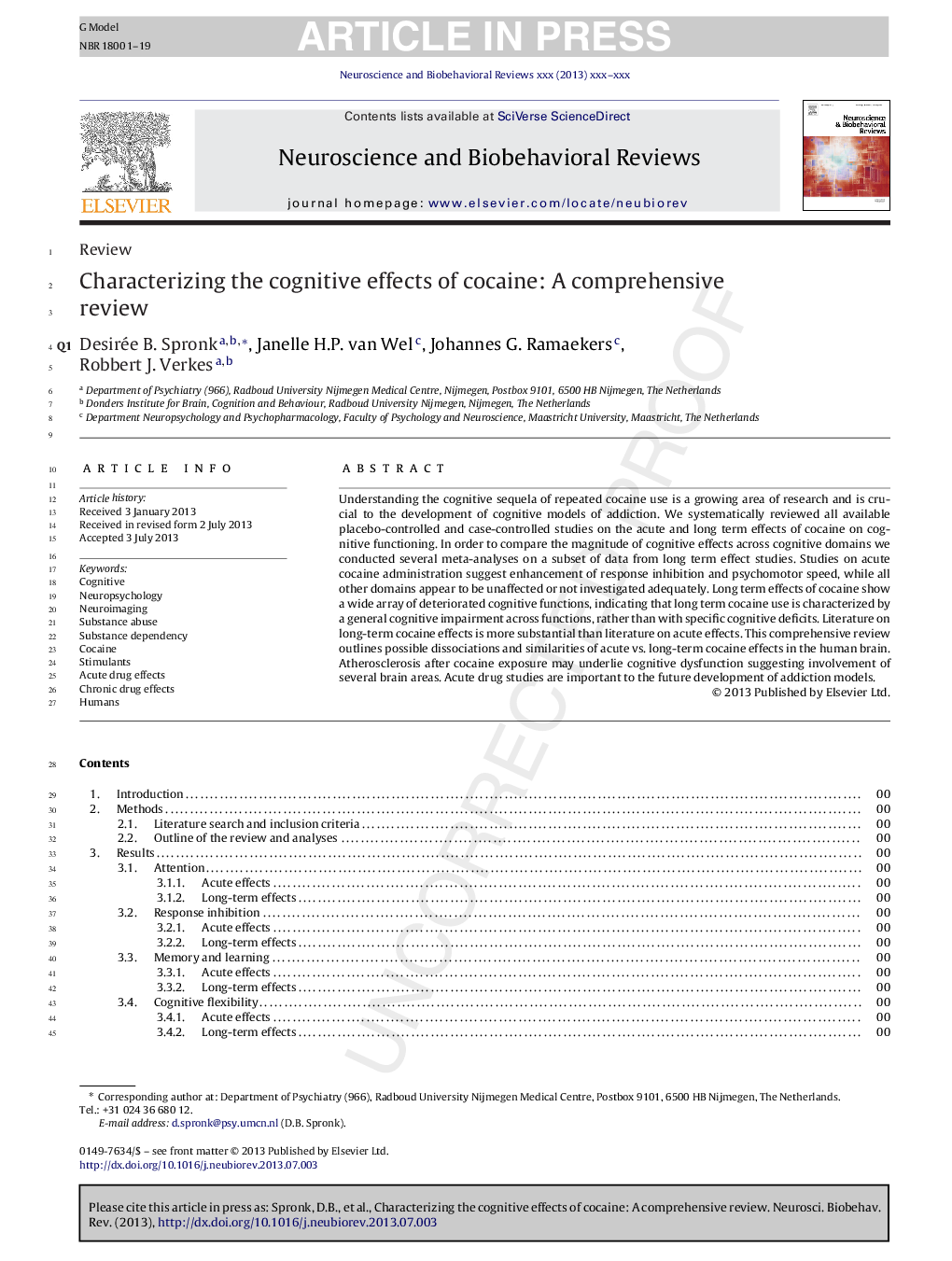| Article ID | Journal | Published Year | Pages | File Type |
|---|---|---|---|---|
| 10461776 | Neuroscience & Biobehavioral Reviews | 2013 | 19 Pages |
Abstract
Understanding the cognitive sequela of repeated cocaine use is a growing area of research and is crucial to the development of cognitive models of addiction. We systematically reviewed all available placebo-controlled and case-controlled studies on the acute and long-term effects of cocaine on cognitive functioning. In order to compare the magnitude of cognitive effects across cognitive domains we conducted several meta-analyses on a subset of data from long-term effect studies. Studies on acute cocaine administration suggest enhancement of response inhibition and psychomotor speed, while all other domains appear to be unaffected or not investigated adequately. Long-term effects of cocaine show a wide array of deteriorated cognitive functions, indicating that long term cocaine use is characterized by a general cognitive impairment across functions, rather than by specific cognitive deficits. Literature on long-term cocaine effects is more substantial than literature on acute effects. This comprehensive review outlines possible dissociations and similarities of acute vs. long-term cocaine effects in the human brain. Atherosclerosis after cocaine exposure may underlie cognitive dysfunction, suggesting involvement of multiple brain areas. Acute drug studies are important to the future development of addiction models.
Keywords
Related Topics
Life Sciences
Neuroscience
Behavioral Neuroscience
Authors
Desirée B. Spronk, Janelle H.P. van Wel, Johannes G. Ramaekers, Robbert J. Verkes,
